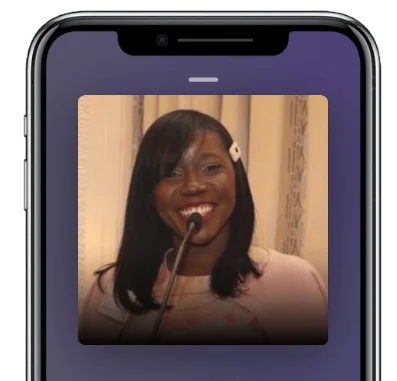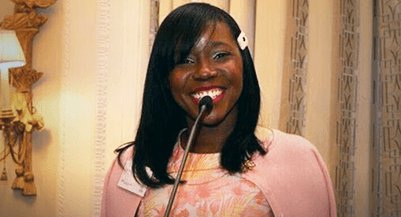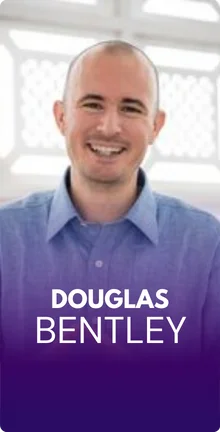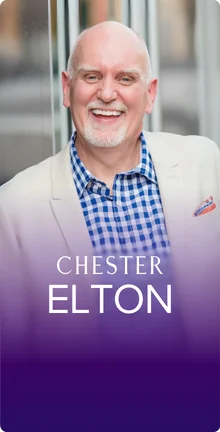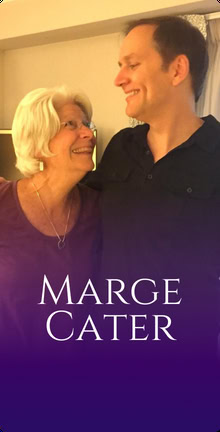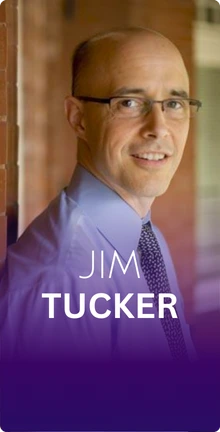In this Episode
- [00:30]Stephan introduces his next guest, Charell Star, a Brand + Partner Media Manager in the FinTech Field, an online journalist, contributor, + featured lifestyle, tech, and fashion expert for on-air segments. As a former foster care youth, she now advocates as an appointed Board Member of CASA NYC and City Living NY.
- [01:58]Charell tells her journey into the foster care system and how she turned negative experiences into positive ones.
- [07:12]Charell and Stephan enumerate the biggest myths about foster care and foster children.
- [11:38]Charell communicates the beginnings of her journey in assisting foster youth, which grew into this passion, making this more of a mission.
- [13:09]Stephan wants Charell to explain about Humans of New York and its impact on her mission and awareness building.
- [19:47]Charell and Stephan name other organizations that are doing great things for the foster kids out there.
- [21:27]Stephan asks about the help given or available scholarships to those kids aged out of the system since they’re no longer qualified to get assistance from the state because they’re over 18.
- [25:06]Charell and Stephan share their biggest gift of their experience being in the system.
- [30:19]Charell emphasizes that there’s the family you’re born within life, and there’s a family we choose and gives an example of a relationship from your chosen family that has stood the test of time.
- [33:59]Stephan wants to know the techniques that helped her get through being shuffled around and the healing modalities that allow her to heal childhood wounds.
- [42:29]Stephan inquires about Charell’s story of getting into fashion and her breakthrough in that area.
- [50:47]Visit Charell Star’s website to know her more and work with her. Also, follow her on Facebook and Instagram for her latest updates.
Charell, it’s so great to have you on the show.
Thank you so much for having me on.
It is my pleasure. I was really impressed with what you were doing out there in the world to bring attention to the plight that a lot of foster children have and the problems that there are in the foster care system.
I actually was a foster child myself for most of my high school years. Maybe we could start actually if you could share your story of growing up and how you ended up turning lemons into lemonade like turning your potentially negative experiences with the foster care system into a positive. Or maybe it was just all positive and you just wanted to help.
I wish it was all positive, but it was not. It was not all positive. I actually ended up in foster care when I was really young. I was placed in care after my great-grandmother got sick. I was really, really young, maybe four or five years old. That started my journey into the foster care system.
I was placed in a number of different homes. I think I went to about six different schools in six different years, so constantly moving and constantly starting over. Some of the homes were abusive, unfortunately. But what I was able to hold to and I was lucky to have is this realization that I knew why I was in care. I was in foster care because my great grandmother was sick and so she couldn’t take care of me.
I also knew that I was wanted. I knew that if she hadn’t been sick, I would have still been living with her. I was very lucky to have that knowledge and that sort of base because a lot of youth don’t have that when they’re in care. They go into care and they don’t know why they’re there. They don’t know how long they’re going to be there.
Kids don't end up in foster care because they have done something bad. They end up in care because something bad has happened to them or around them. Share on XPeople are saying these things like you’re not wanted and you’re never going to go home. These were things that were said to me, but I knew that wasn’t true. I knew that I was wanted and that I was loved. That just started me on this journey of having some sort of focus and having some sort of grounding, that I was able to carry with me as I moved from school to school.
As I ended up being reunified with my mother, I did actually go back to live with her when I was older. Then when I went off to a boarding school, I got a scholarship to go to boarding school and then I got a scholarship to go to college. I always had this momentum behind me.
I think it was always based on that foundation of love that I got with my great grandmother and I’m very, very thankful for that. When you say, oh, I was able to turn lemons into lemonade, really, I just sort of blocked out the bad. I just tried to keep moving forward.
I can relate to what you’re saying about feeling that you were in the system, not because you were rejected, but it just was facilitated by the declining health of your caretaker. That happened to me. I was being raised by my grandfather at the time. He had a heart attack and his recovery was not easy. He just couldn’t care for me anymore. I was surprised that he had contacted children’s services.
This was when I was I think a freshman in high school. It made sense. I didn’t feel like it was random or some unwarranted reaction to my bad behavior or something like that.
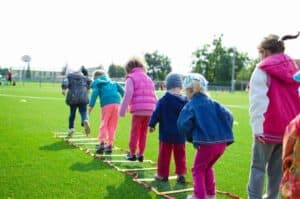
Right. You were lucky to know exactly what was causing it and why he made the call. You knew that he was not well. You were in that environment where you can actually probably see that. Having that, I think, puts you in a different mindset when you enter care.
Yeah. A lot of kids don’t have the benefit of that clear reason that was outside of their own behavior. Some kids feel like they’re being discarded, that they’re not wanted. Not only are they not wanted and then they end up in the system, but they’re not wanted once they’re in the system either.
It becomes a self-fulfilling prophecy too because if they feel unwanted in the first place, then they act out, and then that acting out accelerates them getting moved on to another place. The way it’s done is so thoughtless and kind of cruel. All their stuff is loaded into a black trash bag as if their belongings are trash.
Yeah, as if they are trash. I’ve had that happen to me. I know exactly what that feels like. I want to make it very clear for your listeners, kids don’t end up in foster care because they have done something bad. They’re not juvenile delinquents. They end up in care because something bad has happened to them or around them.
They’re either being abused or neglected. That’s how they end up in care, but they themselves have done nothing wrong. When no one tells them why they end up in care, yes, they might act out in the first home. This is not the place that they used to live. This is not their family.
I just grew into this passion of wanting to make sure that youth who are in care don't have to go through the same traumas. Share on XNo one’s giving them any information about how long they’re going to be here, why they’re here, when do they get to leave. That’s just re-traumatizing them and then you move them from home to home. If your viewers take nothing from our conversation today just to have nothing else, it’s to have a little more empathy for those youth who are finding themselves in these situations because again, it’s no fault of their own.
Yeah. I actually have been on some TV segments talking about foster care and how there are some big myths about foster children that they are delinquents. That’s why they’re in the system is one of them. What would be some of your biggest myths about foster care and foster children?
You hit on a big one, the delinquents one. The way this myth has come about is very, very interesting because there is a foster-care-to-prison pipeline, 100%, there is one. But the way it takes place is we take youth who’ve done nothing wrong. We put them in homes where they don’t have stability. They have to fend for themselves and then they end up committing some sort of crime because they don’t have support. That’s one way.
Another way is we take youth who’ve done nothing wrong and put them in care. We put them in juvenile delinquent environments because there’s no other room for them. There’s no other placement. There’s no other home for them to go to.
We put them in these environments. Who are they surrounded with? With people who are actually in juvenile delinquent sort of situations so they end up carrying that baggage. We basically create this sort of self-fulfilling prophecy for youth we put in these situations when again, they’ve entered care for no fault of their own. That’s a big one that I like to correct.
Youth who are in care need our support. They need our empathy. They need resources.
Also, the other one that I like to correct is that we need to write off. You should write off youth who’ve been through care. Youth who are in care need our support. They need our empathy. They need resources.
They need people to be in their corner. They don’t need to be written off, again, because there are these other myths that, oh, they’re fat or they’ve done something wrong. People want to step away. They don’t want to lean in. We really need people to lean in.
Yeah. I actually pulled up my segment proposal. When I was doing these TV appearances, I would send these to TV producers after having a quick phone call with them and pitching them my idea for foster care segment.
The month of May is National Foster Care Month. That’s a perfect time to be pitching these TV segments about foster children because it makes it timely. Here are the three big myths or lies. I mentioned one already, foster children are badly behaved. That’s, of course, not true. But yet, over half of Americans wrongly believe that foster children are juvenile delinquents according to the Dave Thomas Foundation.
The next one is foster kids are underachievers. Whereas the truth is that 65% of former foster children experienced seven or more school changes, kindergarten through 12th grade. That makes it very hard to keep your grades up with that level of changes.
Exactly. When you’re moving school all the time, you have different teachers, and new lessons, how do you keep up? It’s very hard if you have someone who’s helping you maintain. What was the third one that you had?
Foster kids have medical or behavioral needs that make them difficult to parent. The truth is that less than a third of children in foster care have any kind of diagnosable disability. That was according to the United Cerebral Palsy and Children’s Rights Organizations.
My experience has propelled me to always continue forward and go after my goals, knowing that I can change my goals and keep evolving as I go Share on XIt’s important that people understand that even if they’re not going to take in foster kids themselves, that’s a big ask. They can at least make donations. They can volunteer. They can do some kind of awareness campaign that’s putting messages out there on their social media in support of children who have gone through the system, aged out of the system, and that sort of stuff. Educating and empowering people is an important part of this too.
Yeah, exactly right. The volunteering, the not overlooking foster youth, and making sure you’re keeping opportunities open. One big one I always tell people as well is internships. Ensuring that your internships are being advertised with foster care organizations and volunteer organizations as well because foster youth don’t hear about these opportunities.
You were talking about closing the educational gap for them. Also, we want to make sure that they’re prepared once they leave school, have the skill set to go and find a job, and be able to work and be successful. Ensuring that your company is advertising things like internships, entry-level jobs, those sorts of things in areas and with organizations that support foster youth can go a big way.
Yeah. What started you down this path of assisting foster youth and the awareness and making this more of a mission? How did this all begin for you?
A number of years ago, probably about eight or nine years ago, it’s been a while, I was in a documentary on foster care. It’s a film series called the Foster Care Film Series by Yasmin Mistry. She’s an excellent producer and director, but she’s also a CASA.
If you guys don’t know what CASA is, it’s Court Appointed Special Advocate. She’s a CASA in New York City, meaning she is a volunteer advocate for youth who are in care. As a volunteer advocate, she realized that she actually had more say for the lives of foster youth than the youth themselves did.

She started this documentary series and I was actually her first subject in the documentary series. We filmed that, again, about eight years ago. Then I began to do Q&As around the country speaking at different film festivals, speaking in front of judges, speaking in front of potential foster parents and adoptive parents, and really just educating them on not only my experience but the experiences of other youth within care.
From that, it just grew into this passion for me of wanting to make sure that youth who are in care didn’t have to go through the same traumas and knew that there are someone out there speaking on their behalf and advocating for them. It really just snowballed for me, opening up and sharing my story, to wanting to go further and helping others.
Very cool. Now you had a feature in the Humans of New York. Why don’t you explain what that is? Because not all my listeners or viewers are familiar with it. How did that impact your mission and your awareness building?
Humans of New York, if you guys have not read it, it is the best thing on the internet. I am an avid Humans of New York reader. Essentially what it is, it’s an Instagram and Facebook profile on a usually random individual in New York City. He’s done profiles on people all over the globe. Basically, it’s you telling him a story or you telling a story about you.
These tend to go viral, these stories because the founder of Humans of New York, Brandon, he’s just an incredible storyteller. Even when he was interviewing me, I knew I wanted to make sure I chatted about my foster care experience because again, I’m a focused advocate about that. But I had no idea which angle he was going to take or the way he guided me and just telling some stories that I hadn’t even thought about in years. It’s absolutely incredible.
You can follow him on @humansofny on Instagram and on Facebook. Again, I think about two to three stories come out every week. He’s been doing this for at least five years. They are just these incredible deep profiles on these individuals. They’re regular people. You’ll learn all of these incredible things about people. Then you are able to connect with people from reading their story to reading what they’re passionate about.
In my particular Humans of New York piece, we talked about my time in care from the first time I went to my first home, some of the trauma that I experienced in that particular home, some of the trauma that I carried with me even as an adult, and me dealing with that trauma and overcoming that trauma through the years.
I think he did a wonderful job. A lot of people connected with me through the story itself and then reached out to me on social media and sharing their personal stories. I had so many DMs, and so many messages, and all positive from people who had been in foster care, people who had never been in foster care, had never even thought about foster care, and people who wanted to figure out a way to help.
There's the family you're born with, and there's a family we choose. There are people that we choose to make relationships with which can be deeper, more important, and richer than the family relationships you were born with. Share on XWe were actually able to raise about $150,000 for CASA-NYC because I actually asked if anyone wanted to support youth and care after reading my story to make a donation to CASA. We raised $150,000, again, from being profiled on an Instagram and Facebook page. It was just a very, very incredible experience.
The way it’s really impacted me was just helping me expand my platform, just connecting with more individuals, and again just allowing me to continue in my mission of educating people about what foster care is, about what you’ve experienced, and about the ways that we should be approaching foster care here in America. It was a really incredible and really amazing experience.
I am so happy about it. But again, I can’t plug this enough. If you’ve not read Humans of New York story, you definitely go follow him on Instagram and Facebook because they are all incredible profiles.
Yeah. Also to the GoFundMe fundraiser, is that still in place, the one that’s benefiting class in New York City?
It is. Every time we hit a goal, I just increase it. People are still donating. I think I got another donation in the other day. Whenever we hit a new goal, I just sort of raise it.
CASA always needs money. It’s the thing about nonprofits. They can always use money. I lean into CASA. I’m on the board of CASA-NYC, but I think CASA is across the country. It’s absolutely incredible.
Again, CASA is our special advocate, so they are volunteers. These are people who volunteer their time to help foster youth to make sure they don’t fall through the cracks. They do things to ensure that if they are being moved from school to school, they are getting their coursework moved with them.
If they need to get medical treatment or follow up on their medical regimen, the new foster parent is hearing about that as they’re being moved from home to home. They really fill in the cracks and really help support the youth themselves. I just think they’re an incredible, beautiful organization filled with amazing volunteers. Every dollar helps.
Yeah. It’s amazing that all these people are willing to donate so much time to the CASA program, to these foster children, and not get paid for it. It’s pretty cool.
I didn’t know that there were people outside who cared about me.
Exactly. It’s one of the things that just inspires me so much to know. I didn’t know this when I was in care. I didn’t know that there were people outside who cared about me. I knew my great grandmother cared about me, but I didn’t know that anyone else really did. To have that exposure, to be able to support CASA and its mission, and to see them do their work and actually see youth’s lives change.
Again, they don’t get paid for this. The volunteers do not get paid. They do it because they want to help, because they want to help others, and they want to help the youth. It’s an incredible thing. It gives me chills just knowing how much they lean in and that they just do what they can every single day to help youth in care. When we talked about guardian angels out in the world, I really believe that CASA’s the guardian angels.
Yeah. And all those donors are guardian angels too.
Exactly, supporting that mission. Donors, it wasn’t like, oh, we raised $150,000 and people have donated $10,000. It was people donating $5, $2, and $10. Really, we had hundreds of people, maybe even thousands of people donate these small sums just to help in the way that they could. It was so needed. I am so grateful for it. I cannot say thank you enough.
Yeah, that’s awesome. If you can write a big check, do it. I don’t know if you’ve seen the top donations in your GoFundMe. There’s that link to sort by donation amount.
I haven’t seen the link to sort by donation. I get too caught up because people write notes and I’m trying to respond to the notes and thank them. I didn’t know you could sort by donation amount. I just try to go through it. I don’t know that I’ll ever be able to write thank you to everyone, but I just sort of go through in the order that they’ve donated and try to thank them.
There’s a button underneath the latest donations. There are five featured as the latest donations, but it says see top donations. Just click on that.
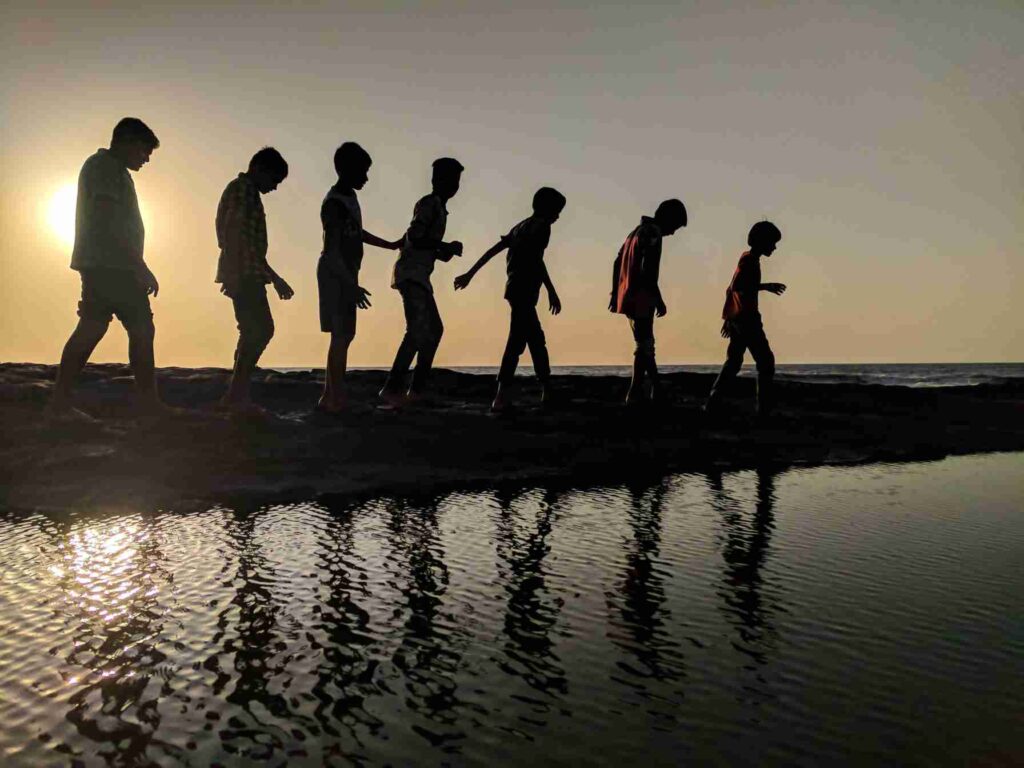
Oh, I will check it out. I am curious.
Yeah. Okay. Besides CASA, there are other organizations that are doing really great things for the foster kids out there. Together We Rise, The Pajama Program, Dave Thomas Foundation.
Comfort Cases as well. They donate luggage, duffel bags, and backpacks to youth so that they don’t have to move with a trash bag. I do not wish that on my worst enemy having my things thrown in a trash bag and taken to a different home. It’s heartbreaking. It’s cruel, but Comfort Cases helps alleviate that by donating these bags for foster youth that are brand new and filled with nice notes and toys. They’re just incredible.
Another organization is City Living, another one I see on the board. It helps youth aged out of care. I think we’ve talked a lot about youth who are under the age of 18, under the age of 21. But when youth aged out of care, 50% end up homeless within 18 months because they don’t have an income. They don’t have an actual place to live.
City Living actually helps to teach youth how to live independently and successfully by being able to keep their first home, teaching them how to budget, and keep teaching them cooking skills and all the skills they haven’t learned when they were in care. There are a lot more organizations like that popping up all over the country that are helping you to age out. That is another big issue is the number of youth who age out straight into homelessness.
How do you help these kids who have aged out of the system? They’re no longer qualified to get the assistance from the state because they’re over 18. They’re now no longer in high school. They don’t have a family to lean on. What’s the solution there?
The solution is to be able to navigate life on their own.
The solution is to, before they age out, help them with the skill sets that they need so that they can live an independent life and a successful independent life. That includes being able to find a home, keep a home, and being able to find a job and work a job. Being able to navigate and network like a life on their own.
I like to always say the best defense is a good offense. We need to start earlier. We can’t talk about aging out with a youth when they’re 17. We really need to be talking about aging out when they’re 11 or 12 because by that point, unfortunately, it’s less likely they’re going to either be reunified or adopted in the system. That is just statistics and we know that for a fact. We needed to have that conversation earlier.
Once youth have aged out or about to age out, ensure that they have the systems and resources in place to be able to pay their rent as they look for a job or as they continue in school. That includes helping them find it. I don’t know how difficult it is to find an apartment where you are located, Stephan, but in New York City, it is nearly impossible.
Imagine having a low income, maybe even not having an income behind you, trying to negotiate for an apartment, and pay three months rental fees or pay a broker to find you an apartment. We’re talking thousands and thousands of dollars. Having organizations that can help cover that cost after we were able to help cover that cost, okay, the next step is we’ve got to get a job.
We’ve got to find something that you will be able to excel in, that you’ll be able to grow in because guess what, your rent goes up every year. Even if you’re getting by this year, what happens next year? So being able to teach them those life skills.
Organizations like City Living have really leaned in to try to close that gap and ensure that youth again are able to be self-sufficient once they age out by providing them the resources they need to learn how to navigate being out on their own. We need more programs like that around the country.
Yeah. What about scholarship programs? Are there any programs out there that specifically help foster kids in getting to college, getting a GED, or anything like that who have aged out of the system and are now ready to get more skills or more education?
They vary state by state, sometimes city by city. Some states are better at this. I actually did a tour in Texas at Texas Women’s Institute pre-pandemic. Not only do they have scholarships for foster youth, they also do things like keep the dorms open during breaks because guess what, at Christmas break or spring break, you don’t have any place to go, or summer break.
Keeping the dorms open is actually thinking through what foster youth need to be able to excel in their classes. That means having a consistent roof over their head so they can lean into schooling. There are a number of programs around the country that offer scholarships, that offer additional support for foster youth, but they vary by state.
I always recommend that people look them up online because the Texas one is for youth who are in care within Texas. There are number ones in New York as well, where students can stay at the dorms at Columbia over summer. But again, they’re going to vary from state to state and city by city.
Yup, got you. Looking back at your experience over the X number of years that you were a foster child for 12 years, 13 years, or something like that, what was the biggest gift that you got out of it? Both during the time, in retrospect, and through your adulthood. The gift with the bow on the bottom, as my wife likes to say, what was the biggest one in your adulthood, and what was the biggest one in your childhood itself that you saw from this experience?
I would say the biggest gift or skill was unfortunately being forced to not give in, being forced to not internalize negativity because even as a young child, I could see that that wasn’t going to get me anywhere.
I’m trying to always surround myself with the positive and block out any negativity.
I’m really trying to always surround myself with the positive and block out any negativity, any of the barriers, any of the naysayers around me, that has served me so well in childhood as well as an adult of being able to block out all of the negativity, all of the people who might be doubting my skill set, and just keep moving forward.
That’s not to say that I don’t have moments of feeling like an imposter syndrome of like, oh, do I deserve this or am I working hard enough? I have those feelings as well. We all do. On a whole, I think going through that and seeing that the people who are saying these things to me and being able to be clear about like, you’re saying these things to me because you don’t have the things you want, but I could just choose not to listen to you and just keep moving forward, that is the biggest gift that I could say.
It has propelled me to always continue forward, and always continue going after my goals, knowing that I can change my goals as I go, and knowing that I can keep evolving as I go, and that I’ve never set or never stuck. That is something that I took from being in care.
For me, it was the resilience of knowing I could do whatever I needed to do to get through something and that I could be very independent and not reliant on anybody else. Self-reliance and just resiliency were my two biggest gifts throughout my childhood and my adulthood.
I was able to get married at 19. I have three grown daughters now because I was mature enough at that point to get married. Whereas my peers were just going to try to get into the bars with fake IDs and stuff like that instead of thinking about raising families and so forth.
I wanted a family straightaway. I wanted a family who knew that I wanted them, and that was stable, and so forth. I definitely got lots of gifts from it. Also surprisingly, it’s not the usual circumstance for foster kids, but I still have an amazing relationship with my foster mother. We’re talking decades and decades later now. I’m in my early 50s.
That’s incredible.
Yeah, she’s a big part of my life. In fact, I recently learned last year about this concept of soul contracts. I do know it to be true. It’s a belief. Many will argue this is a belief. Religious beliefs, spiritual beliefs, they’re all beliefs, unless you prove it to me. But I do know with every fiber of my being that there are spiritual soul contracts that we agreed to before we incarnate.
My foster mother agreed to be my foster mother and to help raise me before either one of us incarnated before either one of us was born. Think through all your challenges, all the strife, and all the spectacular failures with this new lens, everything was kind of pre-decided ahead of time by you, your loved ones, and the people who you’ve interacted with.
It’s your soulmate, your kids, your parents, your business partners, your employers, and your best friends. They’ve all agreed and you’ve agreed too to enter into these relationships before you were born. I have a whole episode on this podcast about this thing of soul contracts where I interviewed Vasundhra Gupta.
She’s actually the lady that I learned initially about soul contracts from because I googled it in her article on myspiritualshenanigans.com. It was what appeared on page one that I read first, so I ended up having her on the show. I don’t know what your thoughts are about that, but I’d be curious to hear what you think about this idea of soul contracts.
I’m not familiar with soul contracts. But what I will say is, I think in life, there’s the family you’re born with and there’s a family we choose. There are people that we choose to make relationships with. Those relationships can be deeper, more important, and richer sometimes than the family relationships that you were born with. I think that’s a good thing.
The people that you choose, you need to hold them close.
Again, there’s the family you’re born with and the family you choose. I think the people that you choose, you need to hold them close. I think you need to support them in the ways they support you and never take them for granted.
As long as you are doing that and you are being a true partner in that relationship to your friends, to your found family, I think that is so important. That’s how we get through life is by bringing these people closer, bringing others closer, and bringing people closer who want to walk the same journey as you who want to see you win, do things to ensure that you win, and support you in the ways to help you win. You need to do the same for them. I think that building those types of relationships are very important.
Yeah. What would be an example of a relationship from your chosen family that has stood the test of time and in what way?
My BFF, my best friend Chanel. I met her in college on my first day. We have been sisters since day one. We’re just going through thick and thin. She’s got two kids now, they’re my god babies. I love them to death.
Literally, she’s someone who is stuck by me in the topsy turvy world and journey that I have been on since she and I met going through college, me traveling abroad, the working world, recessions, pandemics, and just always having her there. She’s just always been so supportive of me. Again, just being my sister.
I don’t even think of her as a friend, we’re a family. I would drop everything on a dime for her. When she needs me, I do. She does the same for me. Having that type of support, the support I didn’t have when I was a child in care and being able to have that now, I value it so much.
Yeah, awesome. Were there any friendships from childhood that stood the test of time? I know you went to a lot of schools and had to start over again each time. I think you said six schools in six years, is that right?
Yes. No friends from childhood, unfortunately, because I moved so much. Those bonds were severed with every move, unfortunately. It was always starting over. Even when I got a scholarship to go to a boarding school, which was incredible, an academic scholarship. I have some friends from high school that I’m still in touch with, which is wonderful. I really appreciate their friendship.
After college, it was me being stable and moving to one place or one apartment, and being able to continue the friendships. Even at boarding school, I was there for four years and then I went off to college.
College was like, okay, these are your friends for the rest of your life. These are the people who are going to go to their weddings and unfortunately, funerals. You’re going to watch them have babies and their kids grow up. Those are the ones that I’ve chosen to maintain. It also was a lot about me having the ability to maintain them because I wasn’t being shuffled around anymore.
How did you cope with being shuffled around so much? Were there any techniques that helped you to get through it?
Holding on to the belief and the knowledge that this isn’t right helped me cope.
Yeah. When it was happening, holding on to the belief and the knowledge that this isn’t right, helped me cope. Again, I think having a foundation where I lived with my great grandmother, I was in a stable home. I was in a stable environment. I was going to school every day. And then being taken out of that and placed in these homes where school was hit or miss and not necessarily stable environments.
I’m moving every couple of months or so and I don’t know why. People are saying really, really cool things and I’m being abused. But having that foundation of knowing what stability, love, and support was like, I knew that this isn’t right. I knew not to say that, don’t threaten me because I didn’t want to get in trouble or get abused, of course.
In the back of my head, that is what gave me comfort and just kept me sane of like, this is not how this is supposed to be. That’s just something that I took with me as I moved through care. That gave me comfort of, this isn’t right. It’s because I had something to compare it to prior to coming into care.
I remember a couple of experiences where I was, as a young child, recognizing how crazy my caregivers were. This was prior to me entering foster care. My grandfather was quite abusive, physically abusive, emotionally, verbally, et cetera. He was a dangerous man.
I remember this one scene where he had dropped me off at my mother’s house. My mother was severely mentally ill, so she was not able to care for me. I was there visiting for, I don’t know how long. I just remember getting dropped off.
Looking outside, seeing my grandfather pouring rubbing alcohol in front of everybody, all the neighbors were watching him pouring it all over his hands to clean his hands because they were germy from being in my mother’s house. It just made no sense and it was quite a spectacle. I thought, wow, he’s certifiably crazy. That was actually quite helpful for me because it helps to show me that there is no sense to this.
A similar situation happened when my grandmother was still alive. I was living with both my grandparents. I opened up a drawer upstairs. For me, it’s a big drawer because I was really little. It seemed enormous. That door drawer had been filled to the brim with soap slivers. I thought to myself, wow, they’re crazy. They’re really crazy. Again, true and also very helpful for me to not get sucked into their insanity and their warped worldview. Interesting.
What are some of the trauma coping and healing modalities that you have experimented with, gotten benefit from in your adulthood, trying to heal these childhood wounds?
The big one, going to therapy, and finding a therapist who understood the trauma that foster youth experience. Actually having someone experience my type of trauma and my type of sort of upbringing, but going to therapy and being able to talk it out. Dealing with things that had become triggers for me as an adult because I hadn’t dealt with them when I was younger. I didn’t have the ability to deal with them.
When I was younger, no one ever offered me therapy when I was in care, even though they were supposed to. Actually, having therapy, being able to go to therapy. Opening up to my friends, especially, about my time in care, and answering their questions has been very therapeutic as well. Sharing my story, not keeping it bottled up, actually advocating for other youth, and not allowing my pain and trauma to just be mine, but actually use it as a motivating factor to make changes within the foster care system, as well as for the lives of others.
If nothing else, me sharing what I went through, let another youth know that they aren’t crazy, that this shouldn’t be this way. That can give them comfort in the same way me knowing that it wasn’t supposed to be this way, gave me comfort.
I try to share my story as much as possible.
I try to share my story as much as possible, talk with as many foster youth and organizations that support foster youth as possible. But really, those have been my coping mechanisms as I’ve gotten older is not keeping it bottled up, basically.
Have you found that your traumas and difficulties from childhood have benefited you in the professional world like as a fashion expert, journalist, and so forth?
Yes. Some of them have. Some helped me, some have hindered me, unfortunately. Those are the things I’ve worked out with my therapists. Yes, I would say on the positive side, I am no-nonsense about trusting my gut. If I get a funny feeling about you, it is over. It was nice to meet you, we are done, done deal.
That feeling, that trusting my gut, that knowing that my gut has never led me wrong even when I was in care, and being able to recognize things in people that maybe they don’t even recognize in themselves has kept me safe. I lean into that in my professional career.
If it is an environment that sounds off as I’m interviewing for a role or a new team, I will rescind. I will back out of it, this is not for me. I have not been wrong about that. I had never been wrong about that. That’s the way it helped me.
I trust my gut, but I also have to believe what you say.
On the other end, I really had to learn to trust people and not always be so standoffish against other people. I trust my gut, but I also have to believe what you say. If you say you’re going to do X, I have to believe that because I’m so used to being so independent and just doing everything myself, and that can get overwhelming.
That held me back. That can continue to hold me back if I don’t trust other people to do what they say and to deliver what they say they’re going to deliver. Those are the two sides of the coin. Again, having therapists and being able to work through that has helped me go further.
It sounds like almost this idea of trusting other people is really giving them the benefit of a doubt, rather than presuming guilt before innocence. Because you’ve given them that leeway to show up positively, you don’t get as disappointed then.
If you’re already showing up with this preconception that somebody is going to let you down, rip you off, betray you, or whatever, then a lot of times, that comes to fruition, in part, because I think it’s more of a metaphysical quantum experience where we’re collapsing all possibilities of this person into one characterization, which we are expecting to be negative.
Lo and behold, it ends up being that way. Whereas if we expect positive interactions and behaviors, then we’re a lot more likely to see that in the person because that’s part of our manifesting it.
Agreed. I think it’s also the energy you put out there. If you’re expecting someone to let you down, betray you, not follow through, or not deliver, that’s the energy you are putting out in the world. That’s the energy they’re receiving.
Maybe they would have done X, Y, and Z, but all they felt was negativity coming from you. All they felt was that you weren’t believing in their skill set or their ability. They didn’t go the extra mile for you. You have to be conscious of that.
Again, I believe in trusting your gut and trust your instinct. Also, you have to be able to see the difference between when your gut is saying red flag and when it’s just saying like, I just don’t know this person. You have to be able to decipher between the two and trust those people who are just like, I just don’t know. I have to assume the best intentions and I’m going to go with that. But again, a red flag, you run.
Got you. How did you get into fashion? What would be the biggest breakthrough that you had in that area?
Fashion is something I’ve always been into.
Fashion is something I’ve always been into. It’s actually something I took from and got from my great grandmother. She had this beautiful wardrobe, a closet growing up. I was able to play with her clothes. I just remember how well she used to dress so fashion has always been there for me and in the back of my worldview.
A number of years ago, I started blogging. I started writing about fashion and beauty, as well as technology. I was covering the latest trends on my blog. I started getting invited to talk about these things on TV, on local news shows. What’s coming up this spring and what should we be looking for on Fashion Week?
I went with it, I leaned into it, and I learned that I really love talking about fashion. I love doing it on camera. The fact that I had this background, this love for it, and I started telling stories about it, people gravitated, wanted to hear more, original and talk more about it. Do it in a really fun, positive, interesting way, and in a way that people can relate to.
It’s not about wearing couture to take out your laundry, but finding items that make you feel really good about yourself, make you feel really comfortable, and make you smile. That’s really the angle and approach I take to fashion. When I share it on different shows, that’s always what I try to leave viewers with.
There’s something that you said in the profile piece on Humans of New York which related to a bully in your school that bullied you in the boarding school. That she accused you of within earshot of having cheap clothes. How was that an influence on your fashion career and your interest in fashion? How did that help shape you positively or negatively?
In the time period, it was horrible because my boarding school is a wealthy boarding school. Again, I was a scholarship kid at this boarding school. I’m both being bullied by someone who’s a wealthy kid and talking really nasty things about me. That was really, really hard.
What I will say is, how it influenced me in my career and in the fashion picks or fashion trends that I tend to lean into for my followers or my viewers, I really lean into fashion not being about a price point, really about fashion being an expression of who you are and the representation that you want the world to see about you.
It’s not about, again, having to pay for couture or having to buy $10,000 bags. You can find something just as cute at Target or TJ Maxx as you can at Paris Fashion Week. Just knowing that and knowing that it’s not about what you spend, it’s how you present yourself. How that look makes you feel and what you want to say to the world, I think that’s how it influenced me.
It should have never been about how much my clothes cost. It should have been, does she look presentable? Is she getting all her schoolwork done? Do people want to be around her? Is she a good person? Those are the things that I try to speak with my clothes, that I want my clothes to say about me.
I really try to, again, have my followers and my viewers really think about what they want their clothes to say about them and know it doesn’t matter what they spend on them. It matters that their clothes project those feelings, those emotions, those values to people around them. That’s how it’s really impacted me.
You mentioned your followers. You have something like 33,000 followers on Instagram, which is not too shabby. Congratulations on that.
Thank you.
One of the recent questions that you posed to your fans and followers was, how long is a child with a foster family? It’s kind of like a quiz question, I guess. What is the factual answer based on research or on studies? How long is it?
I do a series where my followers can ask me anything. They can ask me anything about fashion, beauty, or foster care.
It wasn’t a question I was posing to them. I do a series where my followers can ask me anything. They can ask me anything about fashion, beauty, or foster care. I was answering a question about the length of time that youth are in care. This particular question is from someone who was interested in potentially fostering.
The answer to that is it varies. The average length of time a youth is in care is about two years. That’s just average, but youth are in care way longer than that. They can be in care their entire lives. They can be in care for a week.
Usually, the shorter time period that they are in care tends to mean that they probably shouldn’t have been in care in the first place. There probably was either a false allegation or there was kinship that could take custody of a child immediately, so they don’t stay in care very long. About two years is the average length of time in care.
Got you. Okay. Interesting. You’re answering follow-up questions every week or multiple times a week?
It’s basically every week. I answer one question per video because the reels are only about 60 seconds, so as in-depth as you can go on 60 seconds. Usually, it allows time for one question. But yeah, it’s anything they want to know about. A lot of times, actually, it’s foster care questions.
I probably say 60% to 70% of them ask me things about foster care, wanting to understand what that is, and learning more about it. I’d say the other 20% are about fashion, so fashion questions, and then maybe just 10 about just finding yourself, just people looking for recommendations or tips on how to deal with different situations that might be going on in their personal or professional life. But the vast majority are foster care questions.
Cool. What’s been your most viral post?
I’ve had some good ones. There was a recent one on transracial adoption. That one did really well. I’m trying to think of the other ones that have gone viral. Any ones related to Humans of New York have gone viral.
I’m trying to think of other ones that have done really, really well. That one’s just top of mind because it was just this past week that it did really well. The other ones are escaping me right now, but there’s been a few that have done really, really well.
Hearing my story could give someone else the motivation that they need to continue forward makes me feel like not that foster care was worth it, but that I have at least used my experience to the best of my potential to inspire others. Share on XI think I’ve had a couple of fashion ones go viral, but the majority have been foster care ones. What I love about virality is reading the comments from people and then answering the question too. Those who’ve been in care, those who are foster parents, those who are social workers and caseworkers, and seeing these conversations happening in my feed, I think that is absolutely incredible.
I love that because it just gives me a different point of view. It gives other followers also different points of view as well. If you’re ever on my page, definitely read into the comments because there are some very interesting thoughts in there and thoughtful responses in there as well around the questions.
Has anyone given you the feedback that you’ve saved their lives?
I would say not that I’ve saved their lives. I have gotten the feedback of, I wasn’t going to do X until I heard you speak or I was afraid to try until I came across your page. I always get chills when I read those DMs, those messages, those emails.
I know of a couple of different foster youth who have written to me or have told Yasmin that they were applying to college because they heard me speak about not letting my situation limit my potential. I feel so humbled. I feel so incredible.
Again, just the fact that hearing my story could give someone else the motivation that they need to just continue forward makes me feel like not that foster care was worth it, but that I have at least using my experience to the best of my potential to inspire others.
Yeah, amazing. Well, you have and you continue to do so. My hat’s off to you for that.
Thank you.
Where would our listeners or viewers go to support you and the initiatives that you’re supporting besides the GoFundMe? What else can they do to support you, what you’re up to, and the various foster care programs that are making a difference for kids?
If you want to support me personally, follow me on Instagram and on Facebook at Charell Star. Ask me questions to answer for you and for other people. You’d be surprised by the questions that I answer. I try to always be thoughtful about my responses. How many people lean in who are curious about that, who are afraid to ask? In my Ask Me Anything series, they ask me questions.
For the organizations that I support, I support CASA. Again, I’m on the board of CASA-NYC, but there are CASAs all across the country that could use your support, could use your empathy, could use your funding for donations. You can donate to the GoFundMe that I started for CASA-NYC or to a local CASA in your area.
City Living, again, is another organization that I support and would love for you all to support. Again, they help youth who have aged out of care and help them build self-sufficient lives and independent lives. That’s another organization that you can support. But if you want to know what’s going on in my world and where I’m speaking next, Instagram is always the best way to keep track of me.
Okay, awesome. What’s your main website to send people to?
My website is charellstar.com. It’s everything Charell Star. Instagram is where I keep all my latest updates, so @charellstar on Instagram.
Okay, awesome. Charell, this was fabulous. You’re inspiring and amazing. Thank you for that. Thanks for taking your time to be on the show.
Thank you so much for having me on. This was a lot of fun.
Yeah, for me too. Listeners, get out there and make the world a better place. Just like Charell is doing, you can do it too. We’ll catch you in the next episode. I’m your host, Stephan Spencer, signing off.
Important Links
Connect with Charell Star
Businesses/Organizations
People
Previous Get Yourself Optimized Episode

